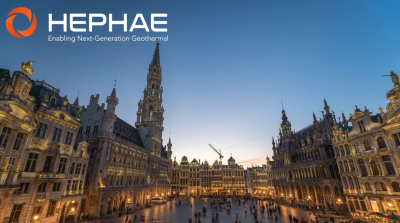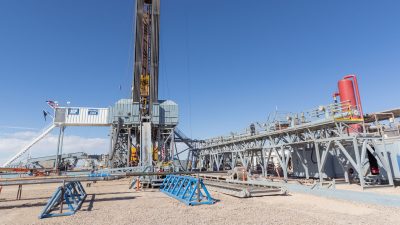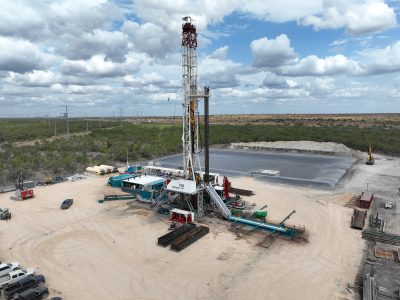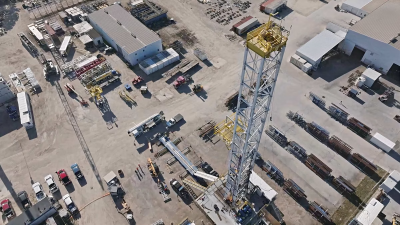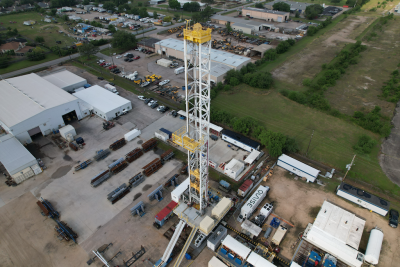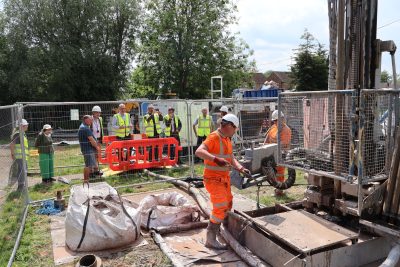How Data Can Transform the Geothermal Energy Industry
Data is no longer just an excuse for a clueless film plot to find a resolution. Instead, it’s frequency, depth, breadth, and insight is continuing to change the world around us (mostly for the better).
Data experts from Forth Point and self-proclaimed SEO geek, Chris Ayliffe of Arctic Meta discuss the prominent opportunities facing the geothermal energy industry in the wide and expanding world of data.
Data is no longer just an excuse for a clueless film plot to find a resolution. Instead, it’s frequency, depth, breadth, and insight is continuing to change the world around us (mostly for the better).
From energy production, consumption, and market forces, data is the new fuel that has no allegiances whatsoever to a specific sector. And, with that ability to drive value across the renewable energy spectrum in general, it’s vital importance to the future cannot be overlooked.
What is Energy 4.0?
Energy 4.0 simply refers to the integration of emerging technologies within the energy industry.
This includes all the buzzwords of cloud computing, the internet of things (IoT), big data information management, artificial intelligence (AI), and machine learning.
This very concept is a huge disrupter in the global energy industry, and requires utilities to adapt to new requirements and opportunities incredibly quickly.
For instance, we’re all well aware of the negative impacts of climate change and the surge in requirements to shift toward renewable sources rapidly for global energy demands. However, there has long been the debate of how we can best match energy supply and energy demand for maximum efficiency and minimise waste.
These kinds of challenges are where energy 4.0 becomes increasingly essential.
Challenges for Energy 4.0
Although the advancement of data within growing breadths of technology draws in plenty of enthusiasm, there are still significant core challenges that remain to be solved.
Firstly, as with the implementation of any new underlying technology there are, more often than not, significant levels of investment required. These monetary constraints can vary considerably, and thus the need for closer public and private sector collaboration is likely necessary to achieve a more holistic and sustainable solution.
Secondly, you can’t mention the word ‘data’ these days without ‘security’. As obvious as the point sounds, with any technological digital transformation the preservation and security of data is a crucial element for success. Accidental mismanagement or more sinister interventions have led to significant complications.
Finally, a government’s ability to proactively react to the changing trends with up to date legislation and regulatory rules is incredibly important. For example, both physical and cyber safety standards need to be able to address changing consumer needs, and match the global energy industry’s desire for change.
How this can help the Geothermal Energy Industry
As the depth of data within the geothermal energy industry is incredibly wide-spanning, and the growing importance of geothermal as an energy source with far lower energy production fluctuations, it’s essential we consider how data can be used in a much smarter way.
As a start, here’s the current top areas of opportunity facing the industry.
AI to Boost the Productivity of Next-Generation Geothermal
As has been widely reported, Google has partnered with Fervo Energy to develop AI and machine learning that could boost the productivity of next-generation geothermal and make it more effective at responding to demand.
This intriguing partnership is said to involve advanced drilling, fibre-optic sensing, and analytics techniques to gather real-time data on heat-flow, temperature, and performance of the geothermal resource.
With such depth and validity of data, this advancement in geothermal technology will make it possible to precisely identify where the best geothermal resources exist, and control the flow at different depths.
When you combine this ability with AI and machine learning development, the productivity advancements could be revolutionary.
Machine Learning to improve Drilling Location Targeting
There’s no escaping the risks (inc. financial) to identify new geothermal drilling sources around the globe, as well as the number of complications that can arise during these types of projects. However, this is where machine learning comes in.
Machine learning can be used to more accurately spot geothermal identifiers from land maps and detect sites fit for purpose. This can include quickly spotting and categorising land deformations caused by geothermal activity, finding markers for hydrothermally altered minerals, as well as defining analysis boundaries using fault density data.
The advancements and opportunities in this space are tremendous. By applying machine and artificial intelligence in combination with wider computing capabilities and geothermal expertise, tools can be created to solve a variety of complex problems (like site drilling locations) in the industry in a matter of minutes – another step in the right direction of geothermal efficiency.
Machine Learning For Reservoir Characterisation
It’s important to have reliability and accuracy in future heat-flow forecasting when determining geothermal power plant efficiency and capacity.
Conventional models can now be challenged and negatively impacted by unknowns such as unexpected gases or indistinct reservoir boundaries.
Machine learning can be used to integrate big data and IoT field measurements to more accurately understand the current, and evolving nature, of each geothermal power plant’s reservoir.
This level of enhanced sophistication is another avenue data can better support the geothermal energy industry’s efficiency and risk mitigation.
Plant Optimisation & Asset Maintenance through Machine Learning
Across a lifetime, the progression of plant conditions has a significant interplay with the respective underground reservoir. For example, this includes the heat exchanger, evaporator, and of course turbine efficiency.
Integrating real-time measurements with machine learning can add significant value to conventional performance models. It can also adapt to plant specific characteristics across different locations and regions around the world, with a view to optimise the output and more effectively predict maintenance schedules.
This level of real-time accurate analysis helps to support overall geothermal power plant efficiency, and sustain greater effectiveness over a much longer period of time.
How Else Can Data Benefit the Geothermal Energy Industry?
Given the rapidity of technology, data analysis techniques, and quickening integrations across industries, the abundance of solutions the likes of machine learning and artificial intelligence provide for the geothermal energy industry is relatively boundless.
Everything from optimising heating and cooling systems by leveraging smart sensor data and applying machine learning algorithms, to IoT sensors for asset monitoring, subsurface monitoring, Well health and more is helping to further grow the value derivable from the geothermal energy industry.
It’s commonly stated that ‘data’ is the ‘new oil’ of the 21st century. But, perhaps as we’ve shown, data in reality could be the transformational spark for geothermal to further grow its position within the renewables sector and derive greater efficiencies than could have otherwise been possible.
About Forth Point
Forth Point are a team of data scientists and data engineers who help deliver more efficiency and agility through data. Forth Point was established to deliver on the promise of Industry 4.0, which stipulates that through the use of Smart technologies, IoT, AI and Machine Learning, processes are going to become faster, more efficient and more flexible. The key to achieving that promise is extracting insight from data. The problem facing the industry is that challenges are not being solved with a value-first approach. At Forth Point we have a passion for delivering value-led, commercially focused solutions that make our clients superstars through being successful in their use of data to deliver change in their business.









